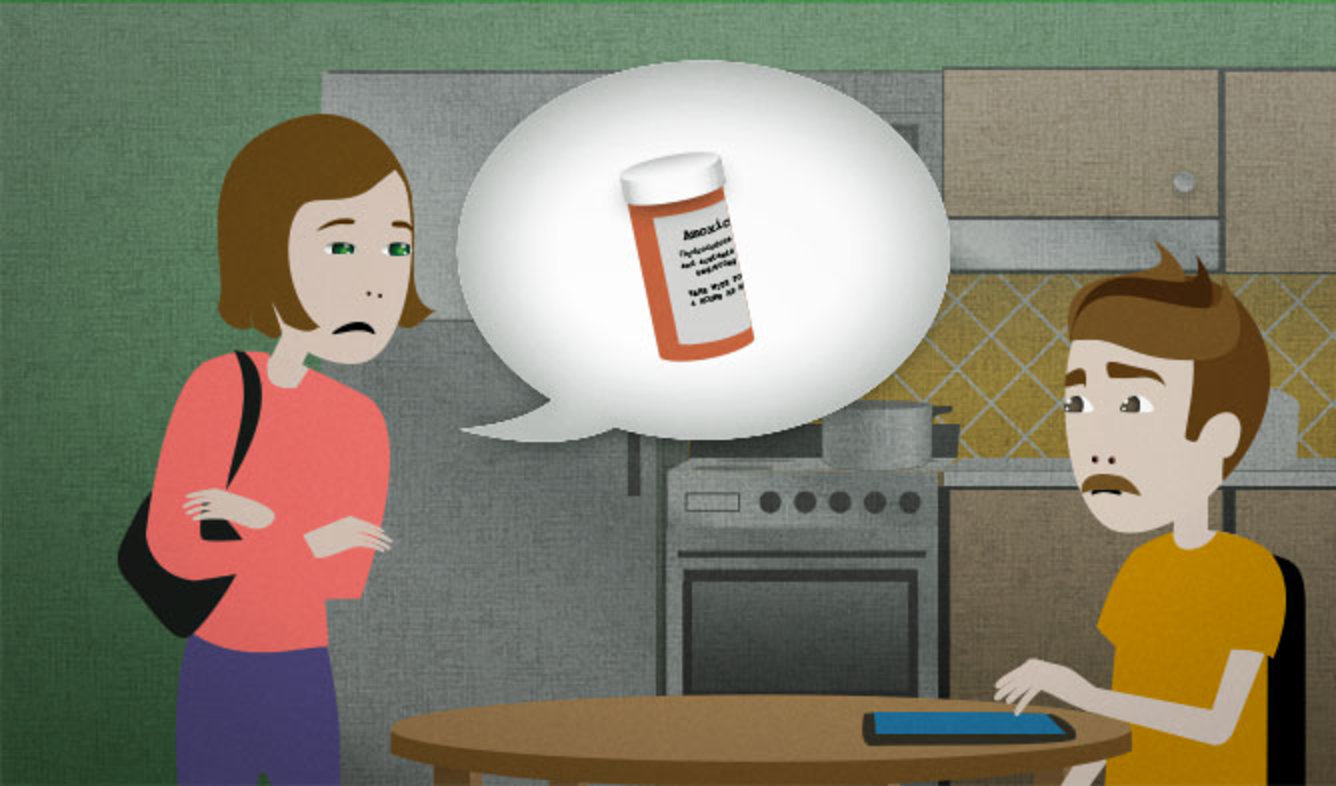“The doctor said that it would take a few days for the antibiotics to take effect.”
You went to a doctor for a bad cough and got some medicine. Now you're at home and telling your husband what the doctor said.
The doctor said that it would take a few days for the antibiotics to take effect.
Want Video and Sound? Follow us on YouTube

antibiotics
"Antibiotics" are a kind of medicine that kills bacteria. They cure various kinds of infections.
People almost always refer to "antibiotics" in the plural form. It's rare to talk about "an antibiotic".
a few (of something)
"A few" is a number that's not specific, but it usually means somewhere between 3-10. It's a little less formal than "several" and also sounds like a slightly lower number. Here are some examples:
You may want to consider hiring a personal trainer for a few sessions.
That's a very generous offer. Um, let me think it over for a few days and get back to you.
(someone) said that (something) would (do something)
When you're reporting what people said in the past, you use past tense like this:
She said she was hungry, so we stopped and got some food.
In this situation, the person's words were probably "I'm hungry" but when reporting what she said, you change it to "she was hungry".
But what if someone said something about the future like this:
I'll send him an email later today with all of the details.
In that case, you report the speaker's words using "would":
He said he would send you an email later today.
(a drug) takes effect
When medicine or drugs start to change a person's body, they're "taking effect".
We also use "take effect" to talk about a new law starting to be enforced:
A new law governing boating safety in Georgia will take effect in mid-May.
